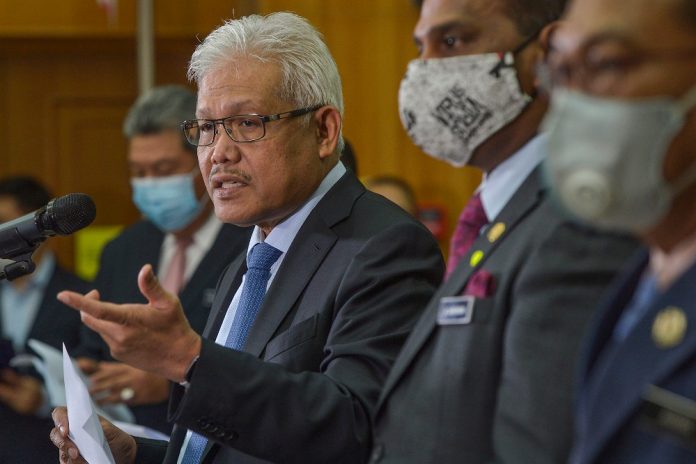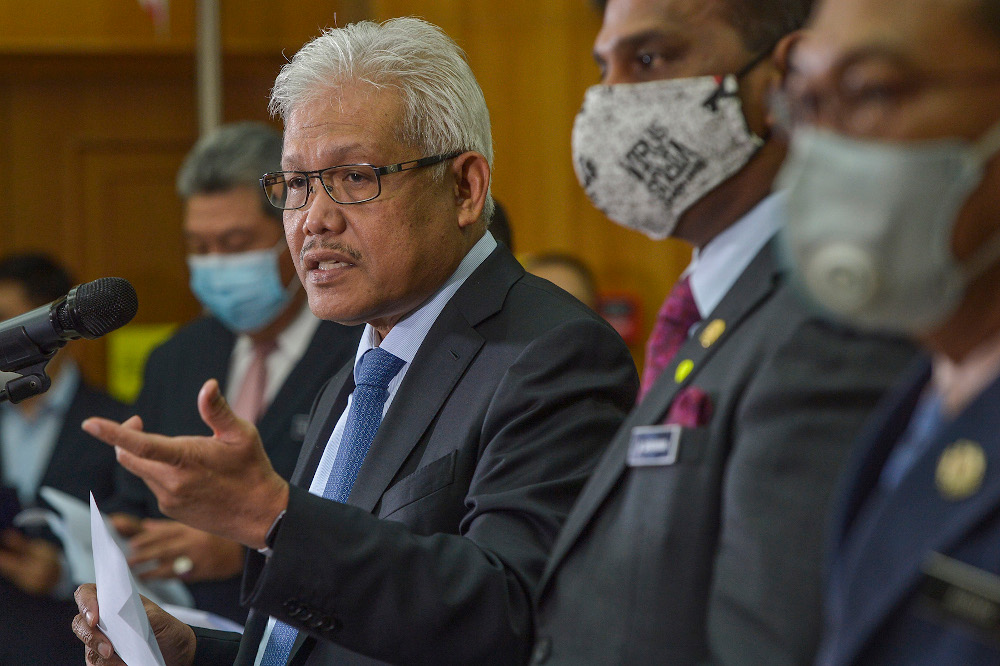PUTRAJAYA, Dec 3 — The multi-tier foreign worker levy system, which was scheduled to take effect on January 1, 2021, has been postponed to July 1, 2021, said Home Minister Datuk Seri Hamzah Zainudin.
He said the move was taken after considering the impact of the Covid-19 pandemic on industry growth and business operations.
“Besides that, the meeting also decided to review the levy rates for the multi-tier levy system for each sector to ensure the effectiveness of its implementation later,” he said after a meeting with Human Resources Minister Datuk Seri M. Saravanan on foreign workers management here today.
Hamzah said the inaugural meeting also agreed to the proposal to close the employment of foreign workers for the frozen sub-sectors of metal/scrap and recycling.
He said the foreign worker’s reduction and termination plan in the sub-sectors would be implemented in stages in the next three years.
Hamzah said the justification for the closure was based on the priority to hire local workers, reducing licence holders in the respective sub-sectors and transforming the industry towards mechanisation and automation.
“Actually, the sub-sectors have been frozen for a long time. However, we want to inform those who are still working that they are given three more years (to work) and after that, they are not allowed to renew their work pass,” he said.
Hamzah said there were 2,931 foreign workers (13.9 per cent) in the sub-sectors, compared to 21,154 locals (86.1 per cent).
Of the total, he said, 1,540 were workers from India, Bangladesh (676), Indonesia (208), Myanmar (129) and others (93).
Meanwhile, Saravanan said so far, the Department of Labour of Peninsular Malaysia (JTKSM) had received 134 applications from employers under the Illegal Immigrant Recalibration Plan, involving 19,734 applications for replacement of foreign workers.
From the total, Saravanan said, 76 were from the construction sector involving 6,470 foreign workers; manufacturing (34 applications, 9,292 workers); agriculture (17 applications, 353 workers) and farming (seven applications, 3,619 workers).
“Employers who wish to participate in the programme can contact JTKSM and the Immigration Department for further details. The programme aims to assist the impacted industry in overcoming labour shortages and sustaining their business,” he said.
The programme is a collaboration between the Human Resources Ministry and Home Ministry through JTKSM and Immigration Department which began on November 16. — Bernama



